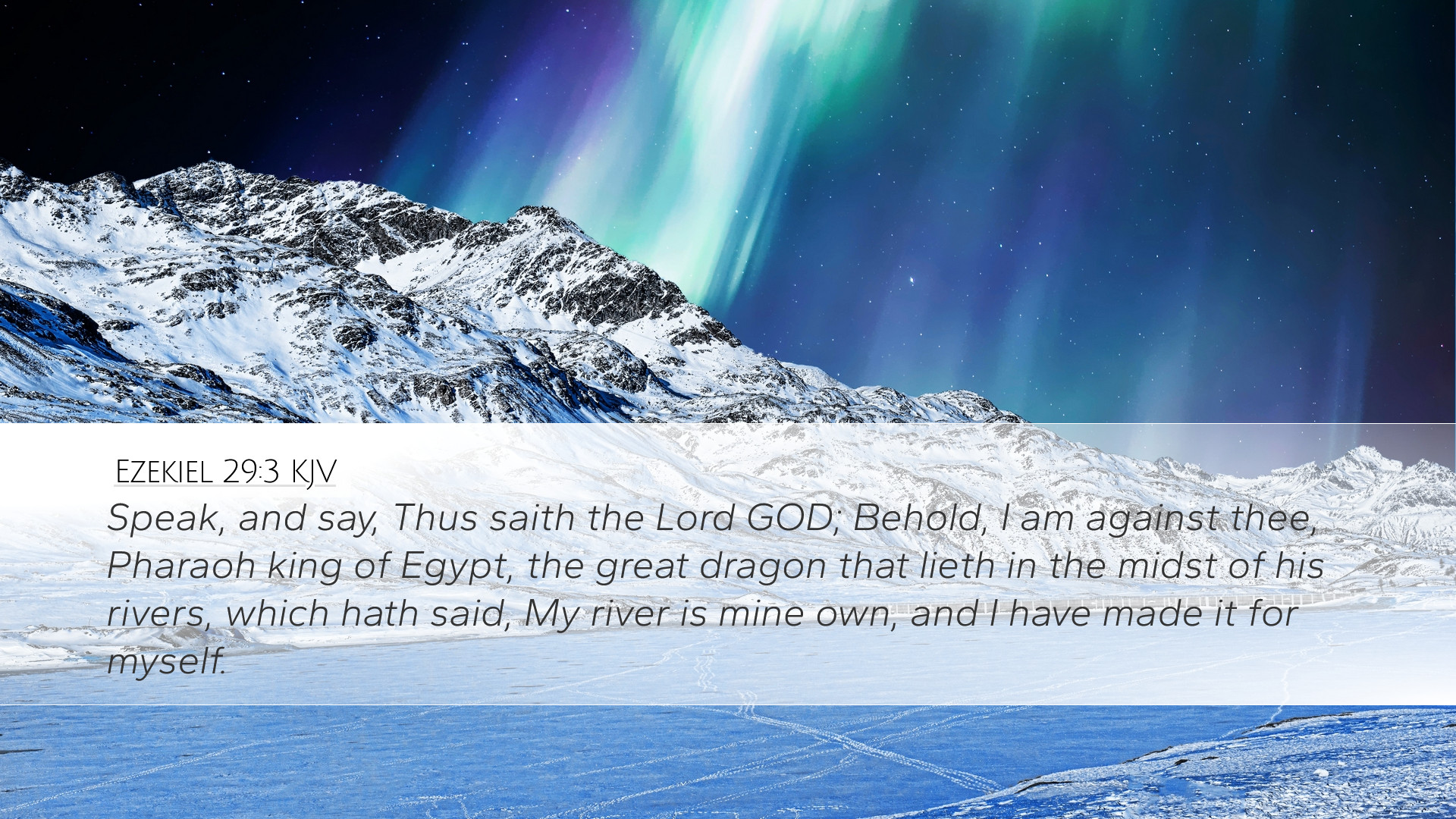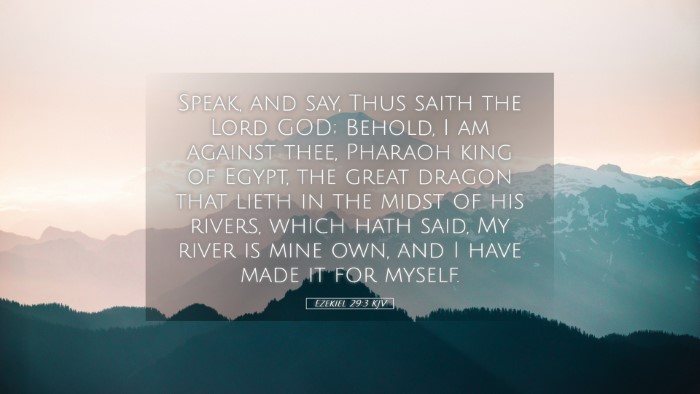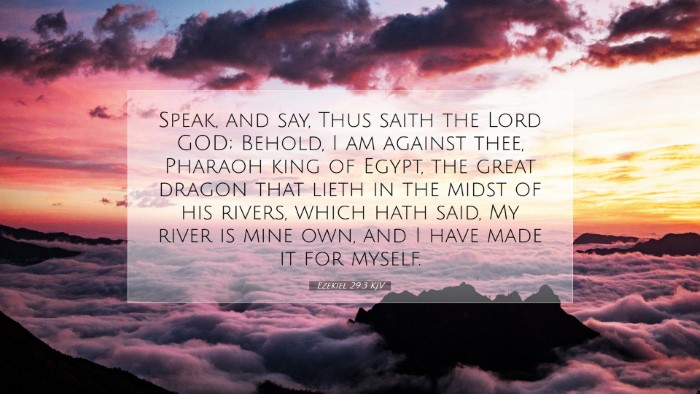Ezekiel 29:3 - Commentary Summary
Bible Verse: "Speak, and say, Thus saith the Lord God; Behold, I am against thee, Pharaoh king of Egypt, the great dragon that lieth in the midst of his rivers, which hath said, My river is mine own, and I have made it for myself."
Introduction
Ezekiel 29:3 presents a profound declaration against Pharaoh, symbolizing not only the individual ruler of Egypt but also the national pride and idolatry of Egypt itself. The verse captures God's sovereignty over nations and His judgment against pride and self-sufficiency.
Contextual Background
The prophetic context of Ezekiel's messages includes the Babylonian exile, where the Israelite community faced humiliation and loss. Pharaoh's claim to divinity, represented in his statement about the Nile, highlights Egypt's idolatrous practices, which God vehemently opposes.
Commentary Insights
1. Divine Sovereignty
Matthew Henry notes that God's declaration "I am against thee" is a powerful reminder of His authority over worldly powers. This assertion establishes that regardless of human pride, the ultimate authority lies with God. The emphasis on "Pharaoh king of Egypt" signifies both individual culpability and national accountability.
2. Symbolism of the Dragon
Albert Barnes offers insight into the metaphor of the "great dragon." In biblical literature, dragons symbolize chaos and opposition to God, often reflecting the might of nations that oppose God's people. By calling Pharaoh a dragon, it underscores the fierce nature of Egypt's power and its opposition to God's purposes.
3. The Nile as a Symbol of Pride
Adam Clarke elaborates on Pharaoh's boast regarding the Nile, contemplating the river as a source of life and prosperity for Egypt. His declaration, "My river is mine own," epitomizes the arrogance in claiming ownership of untamed natural resources. This pride stirs God's righteous indignation.
4. Historical Implications
The historical backdrop is significant; Egypt was a dominant force in the ancient Near East. The nation’s efforts to assert its independence from God would ultimately lead to its downfall. The prophetic call to repentance was not merely for Pharaoh but for the nation whom he led, urging them to acknowledge the Lord.
5. Application for Today
For contemporary readers, the message serves as a warning against the self-reliance many exhibit in both personal and societal domains. Leaders and nations can easily fall into the trap of assuming that their success is self-derived, neglecting the providence and sovereign control of God in their affairs.
Theological Themes
1. Judgment and Mercy
The announcement of judgment against Egypt also embodies the overarching theme of God's mercy throughout the prophetic texts. God desires repentance; His warnings are invitations to turn back rather than mere foretelling of doom.
2. God’s People and Idolatry
As Egypt is judged for its idols, so too is Israel instructed on the dangers of turning to foreign gods. The lesson serves as a reminder that God's covenant people are often tempted to place their trust in worldly powers rather than divine providence.
3. The Nature of False Security
The false sense of security that Pharaoh derives from the Nile echoes a broader human tendency to find confidence in material or earthly sources. This narrative challenges readers to reflect on what they place their trust in and to redirect it toward God, who is the true source of strength and sustenance.
Conclusion
Ezekiel 29:3 encapsulates a vital truth about God's relationship with nations and leaders. Through the imagery and proclamations in this verse, readers are called to recognize the folly of pride and the importance of true reliance on God. The serious tone of this prophecy invites a reflective response in the hearts of individuals, communities, and nations alike.


